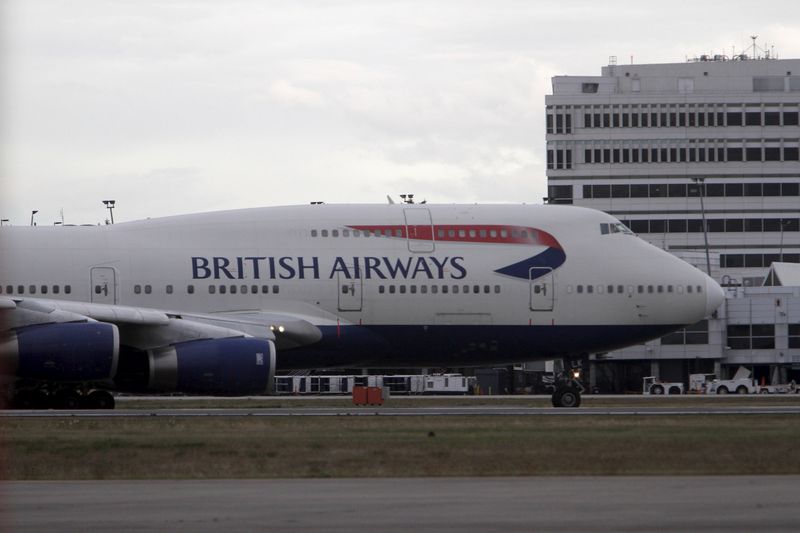This post was originally published on this site
https://i-invdn-com.investing.com/trkd-images/LYNXMPEJ501SQ_L.jpg
WASHINGTON (Reuters) – The U.S. Transportation Department (USDOT) said on Thursday it is fining British Airways $1.1 million for failing to provide timely refunds to passengers for flights to and from the United States during the COVID-19 pandemic.
Since March 2020, USDOT received over 1,200 complaints alleging British Airways failed to provide timely refunds. British Airways, which is owned by IAG (LON:ICAG), denied the allegations.
USDOT said it would credit British Airways $550,000 toward the penalty because the airline in 2020 and 2021 issued more than $40 million in refunds to customers with nonrefundable tickets. USDOT said the fine “establishes a strong deterrent to future similar unlawful practices by British Airways and other carriers.”
British Airways said it acted lawfully at all times and offered customers flexibility to rebook travel or claim refunds if flights were canceled.
USDOT said consumers were unable to get through to customer service agents when calling the carrier for several months because British Airways failed to maintain adequate customer service phone lines.
The airline said Thursday that “at the height of the unprecedented pandemic – when we were unfortunately forced to cancel thousands of flights and close some call centers due to government restrictions – our customers experienced slightly longer wait times to reach customer service teams.”
USDOT has been fining airlines it says failed to provide timely refunds.
Last month, USDOT fined LATAM Airlines (OTC:LTMAY) Group $1 million after the airline and affiliates over delayed refunds.
USDOT said since March 2020, it received more than 750 complaints alleging LATAM, the biggest carrier in Latin America, failed to provide timely refunds for U.S. flights.
In January, USDOT said it planned to seek higher penalties for airlines violating consumer protection rules, vowing to “deter future misconduct by seeking higher penalties that would not be viewed as simply a cost of doing business.”

